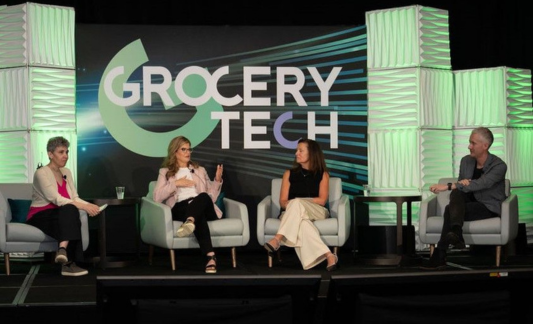Help Isom IGA recover from devasting floods

Nearly 1,700 U.S. retailers, including many Independent Grocers Alliance (IGA) members, recently wrote to Congress to urge lawmakers to pass legislation that would break a key part of the hold Visa and Mastercard have over the credit card market. For those of us in the grocery industry this issue isn’t news. The National Grocers Association (NGA) and FMI – the Food Industry Association have been fighting for decades to increase card processing competition and reduce grocers’ card processing fees.
Senators Dick Durbin, D-Ill and Roger Marshall R-Kan introduced a bill in July that would give merchants the right to route Visa and Mastercard credit card transactions over competing networks like NYCE, Star, or Shazam for processing rather than just Visa and Mastercard's own networks. These networks offer lower fees and better security but Visa and Mastercard — which control 80% of the credit card market — block them from processing transactions on cards banks issue under their brands. You may remember that Durbin sponsored a similar rule for debit card processing that has been law for more than a decade.
In my opinion the truly news-making part of this story isn't the longstanding battle to increase market competition, but the blatant misrepresentation of facts by the Electronic Payments Coalition (EPC). Among other false and misleading statements made in a story that ran this week in The Wall Street Journal, the EPC claimed that when we finally got legislation to open up competition for debit card fees, we didn’t pass the savings onto shoppers.
That statement is simply not true. Since the Durbin Amendment went into effect in October 2011, it has saved merchants about $8 billion a year through reduced debit card swipe fees, with about $6 billion of that savings shared with consumers, according to a study conducted by economist Robert Shapiro. The typical debit card swipe fee has fallen from about 48 to 24 cents per transaction.
Of course, we grocers don’t need an independent third party to tell us that we share every savings we can find with our customers — our margins have been shrinking, not growing.
The truth is that Visa and Mastercard have an effective duopoly that lets them charge retailers whatever they want. U.S. retailers paid $137.8 billion in credit and debit card swipe fees last year. The average swipe fee for Visa and Mastercard credit cards is 2.22% of the transaction amount — the highest swipe fee rate in the industrialized world and seven times as high as what is charged in Europe.
In the grocery industry, independent, family-owned stores are lucky to make a 2% margin on a good day, and credit card swipe fees mean Visa and Mastercard often make more on the transaction than the grocery store. In fact, because of the mysterious way they charge fees — there can be a minimum no mater how small the transaction — there are times when the retailer might be better off letting shoppers take small purchases for free rather than incur a credit card charge greater than what they make in profit.
Clearly, credit card swipe fees are hurting small business, but it doesn't stop there. Because credit card swipe fees are a percentage of the transaction, they are also an inflation multiplier. Economists estimate that last year alone these fees drove up prices for the average American family by $900, and because of ongoing inflation that number is likely even higher today. One payment consultant has estimated that introducing competitive networks to credit cards will save U.S. consumers and merchants $11 billion annually.
The EPC's dangerous and blatantly false rhetoric would be laughable if the issue wasn't so serious. Trying to convince the American people that merchants with incredibly small margins profit from swipe fee savings on the backs of consumers is ridiculous when you look at Visa's gross profit margin of over 76% in 2021, and net profit margin of nearly 52% (Mastercard’s was nearly 47%) in June 2022).
Frankly, the credit card industry’s mouthpieces — from the EPC to other surrogates — remind me of the dark days of Big Tobacco, when that industry used misdirection and obfuscation to direct lawmakers away from their bloated profits and fake research.
We small businesses aren’t asking for a handout or government funding. We simply want justice in an unjust and rigged system. Let us break the stranglehold the duopoly has created, open up competition, and let merchants and shoppers take back some of the obscene profit margins of the credit card processing industry.
Senators Durbin and Marshall’s bill is the right solution. It worked before when we opened up the debit card industry and it will work again when we finally pry open the credit card stranglehold. Small businesses would see some relief, shoppers would save money, and the credit industry propaganda team could be placed in time out for telling false stories. Shame!
You May Also Like
These Stories on From the Desk of
Jun 17, 2025 3:12:02 PM |
2 min read
May 14, 2025 1:17:39 PM |
2 min read



No Comments Yet
Let us know what you think